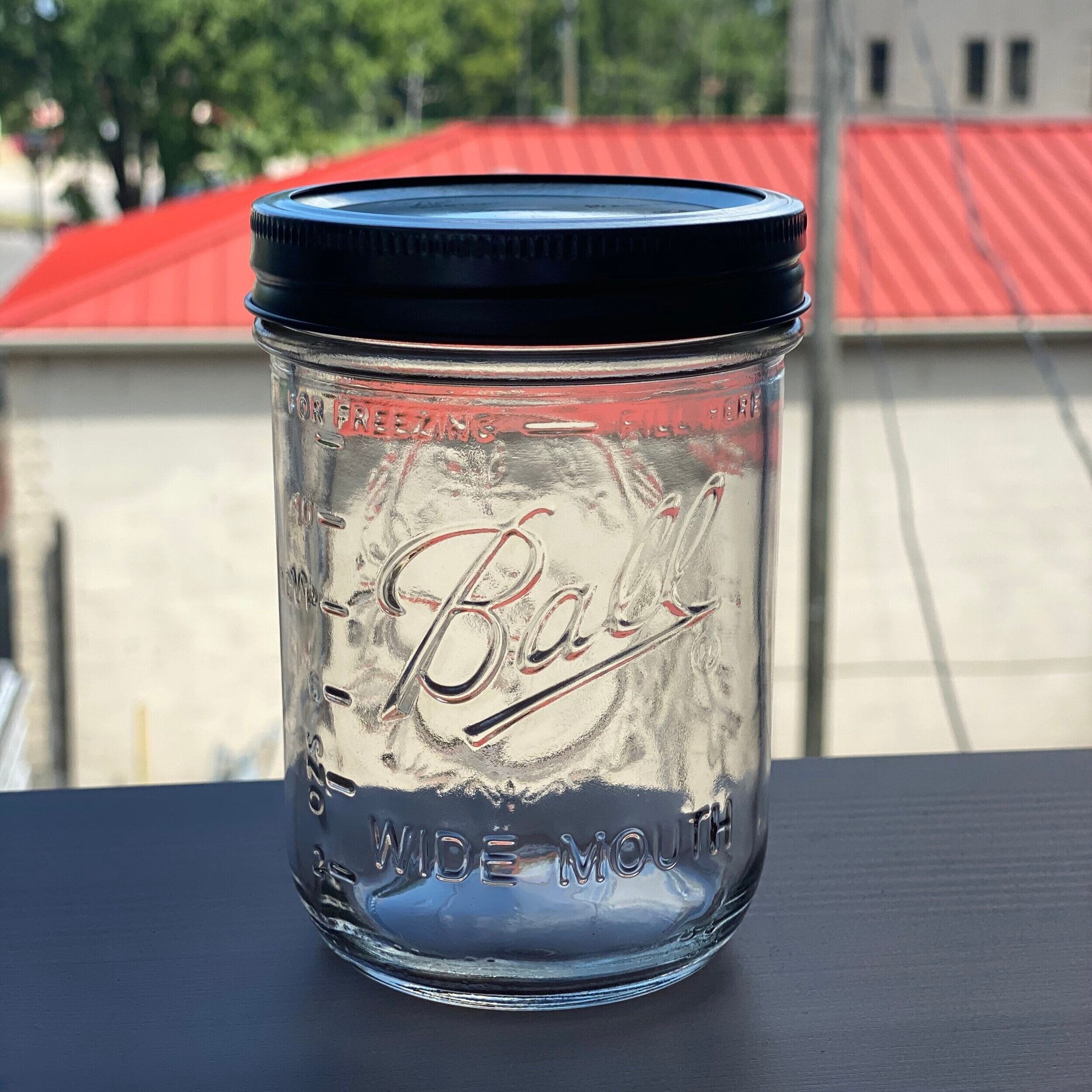Field Trip
An Odyssey from Norway to Birmingham
by Mark Slagle
The pandemic opens new possibilities for experience design
This summer, I attended a workshop hosted by Odyssey Works called “Empathy and Experience Design.” Odyssey Works is an interdisciplinary performance group that designs immersive experiences for an audience of one, or as they call it, an odyssey.
During the workshop, which was being held over Zoom because of COVID-19, I was paired with a stranger and had 20 minutes to learn everything I could about them in order to create a personalized experience for them to partake in. Likewise, I was to receive a bespoke experience from my partner.
On that Saturday afternoon from our studio in Birmingham, Alabama, my computer screen flashed and I was face-to-face with a woman in an unassuming studio. She introduced herself as Maria, a glassblower in Bergen, a small town on the west coast of Norway. Maria’s English contained a charming bit of Scottish accent that came from her years at university in Edinburgh. She described her work as a glassblower, centered around a project called Expressions of Breath (pictured above), that invites audiences to participate in the glassblowing process with their own, one-of-a-kind contribution: their breath.
She interviewed me and asked about my work, my family, and my daily routine. She seemed particularly interested in my daily walk from my house to the studio, just 10 minutes away. As the workshop moderators ushered us back to wrap up our time, Maria already seemed like an old friend. Honest, sincere, and kind. Our respective experiences were to be sent to each other within 24 hours.
Later that night, I received an email from Maria with this quote:
“A step gathers as if the foot were a hand. Whether barefoot or shod, the foot absorbs and stores the land. It knows the land long before the brain knows through thought. The foot stores an ancient form of wise no-thought.”-Ernesto Pujol

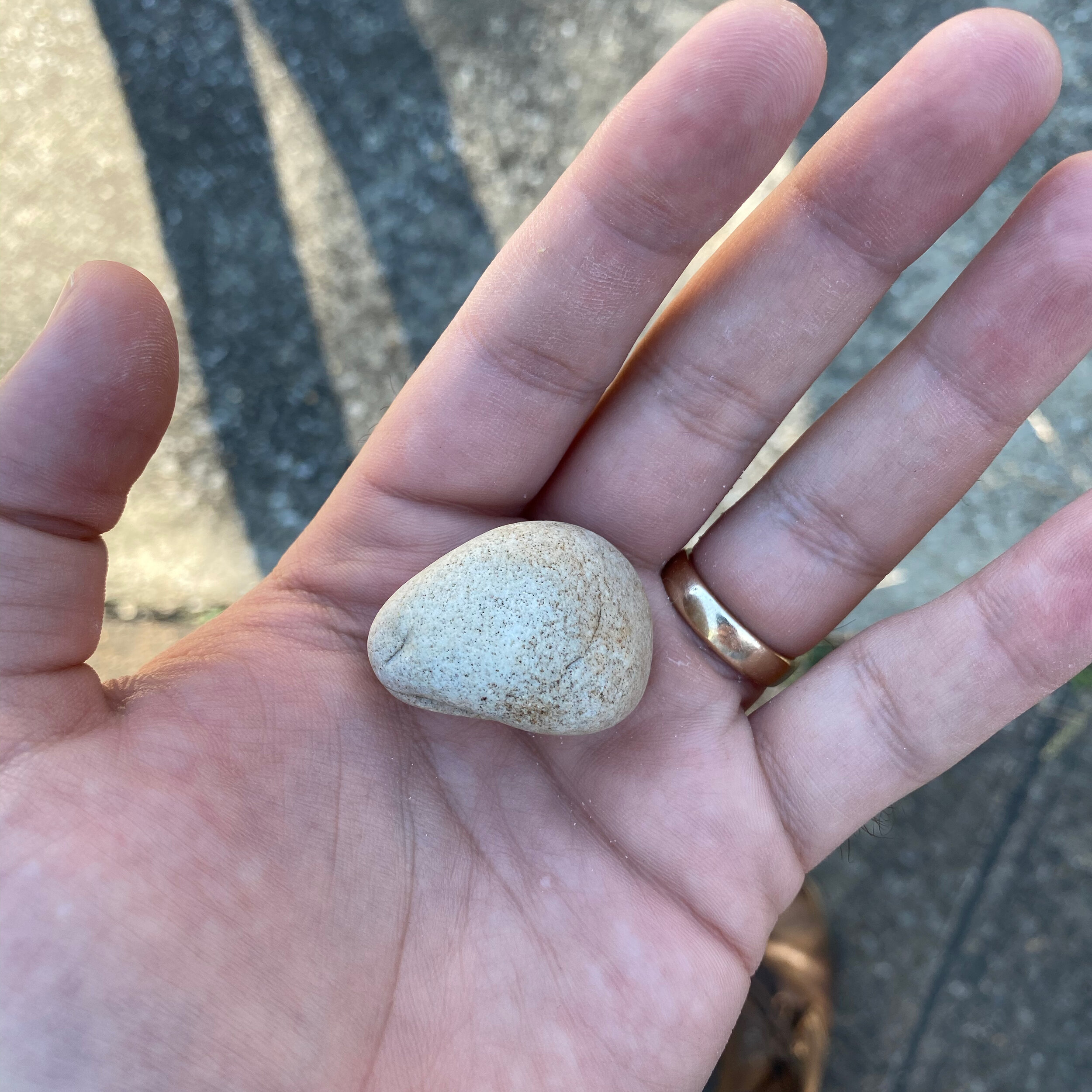
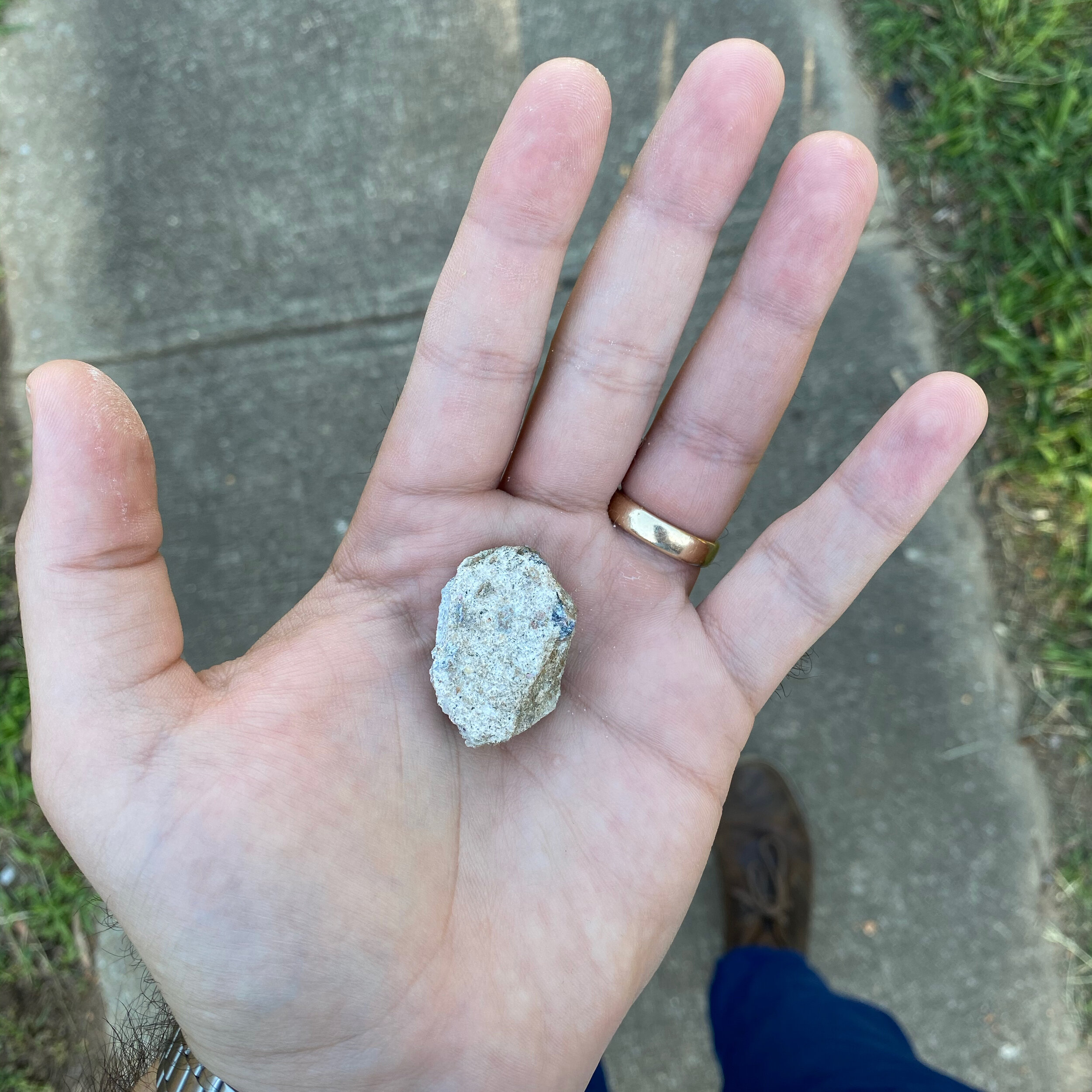
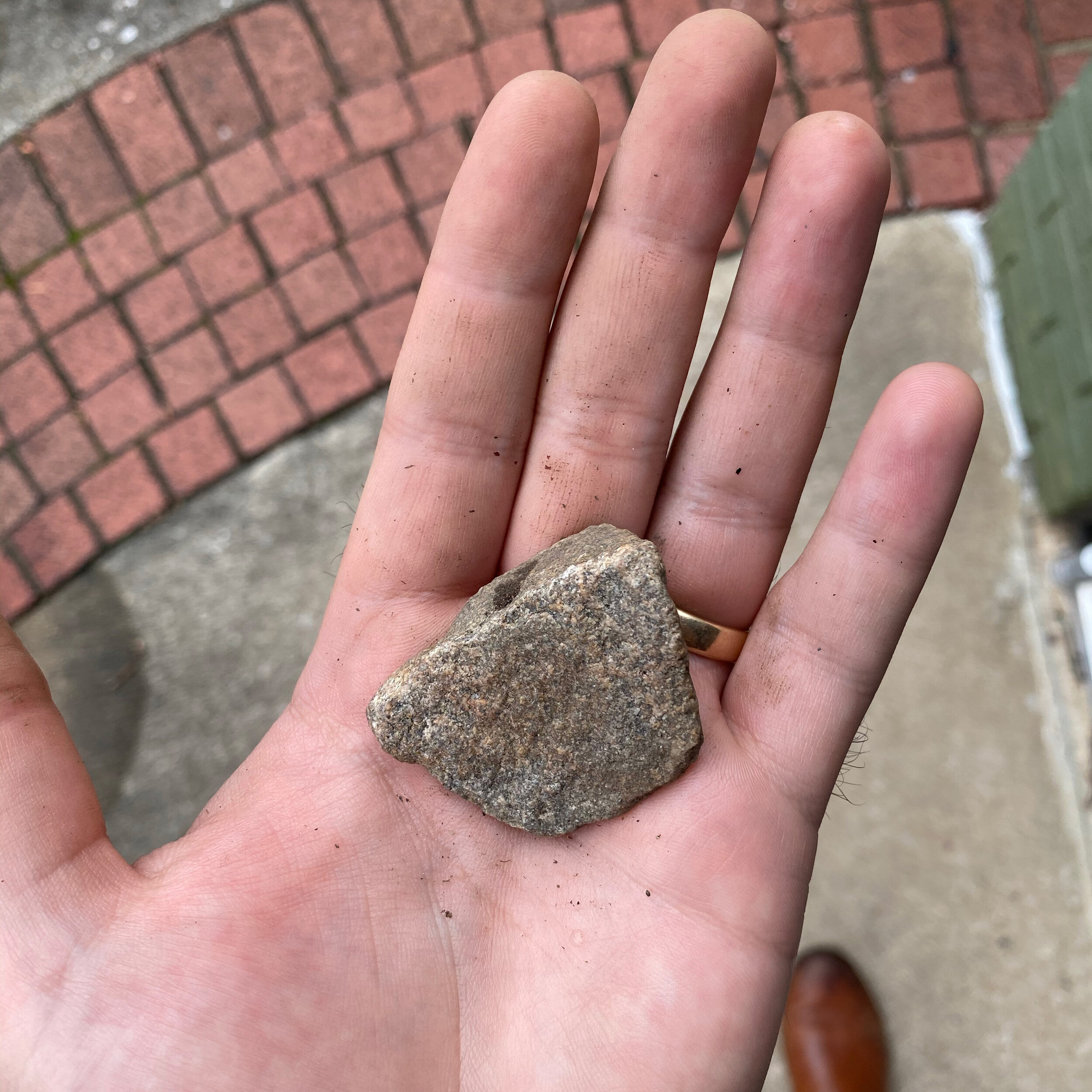
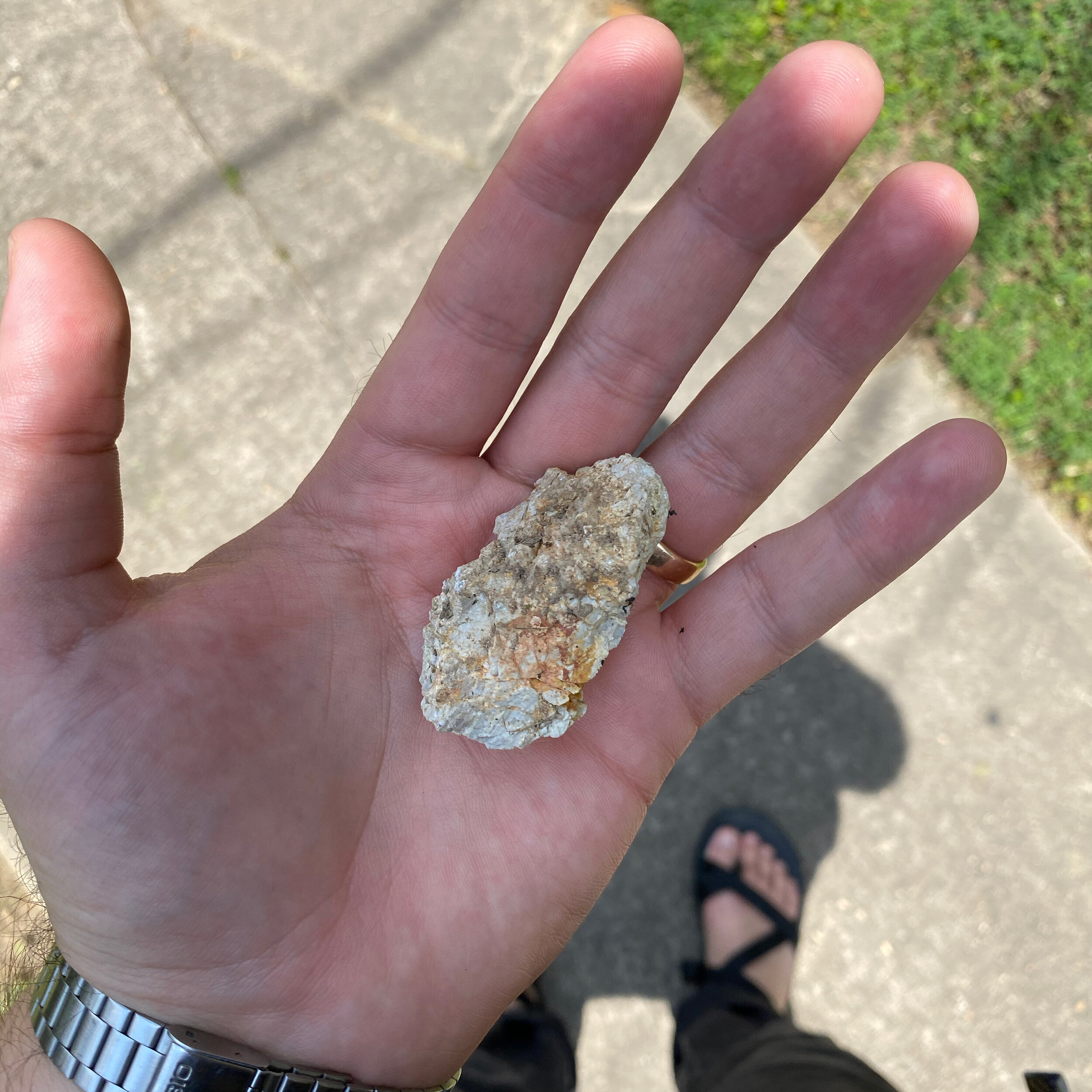
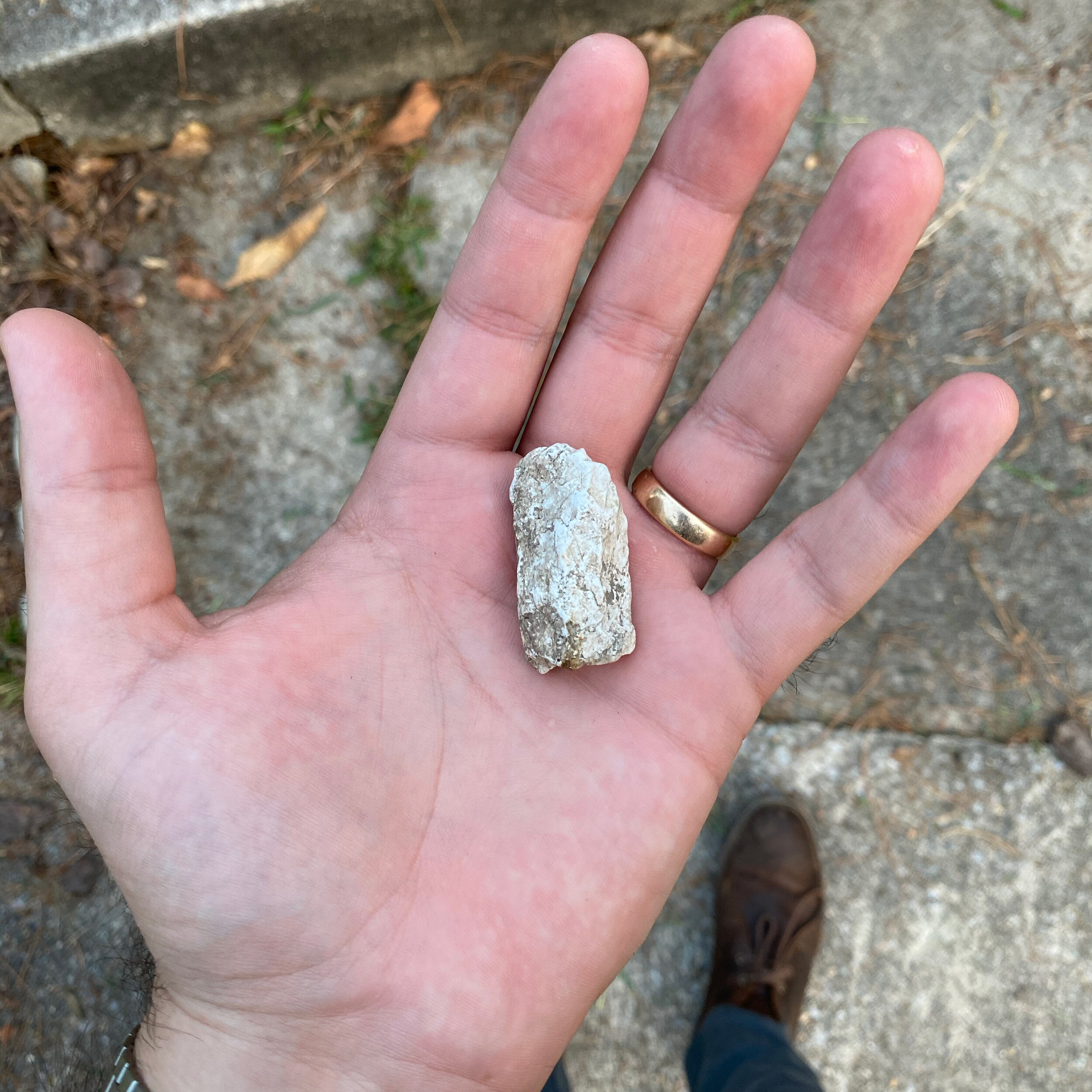
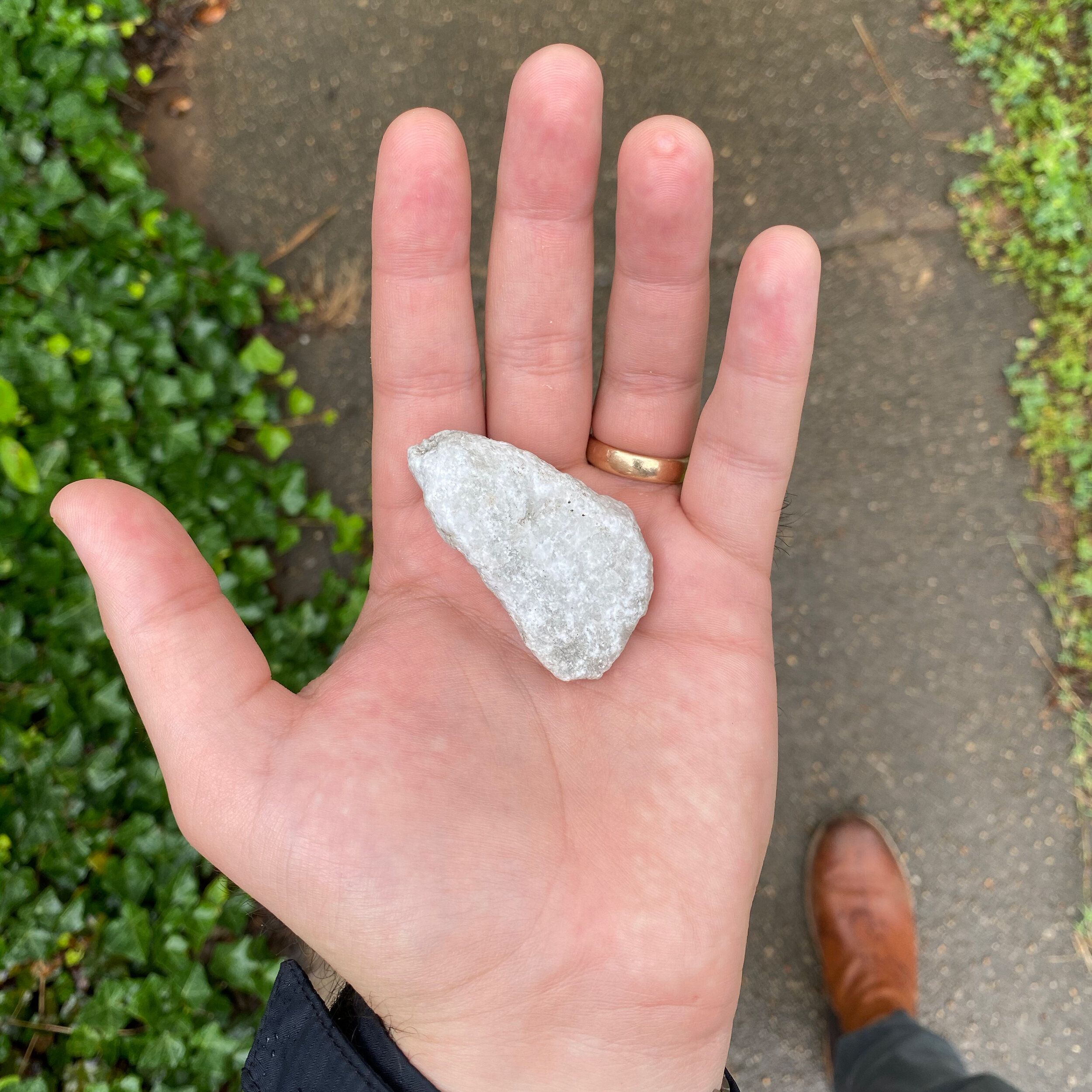
Over the next seven days, I was instructed to take a different route to work each morning. By day three, I was having to get really creative, going out of the way to find alternate routes to the same destination. Along the way, she asked me to pick up a stone. Upon arriving at the studio, I would study it, trace it, and mark on a map where it was found. The next day, I would replace it with a new stone, leaving behind the previous day’s relic in the exact location where I picked up a new one. On the seventh day, I would receive my final instructions.
I became obsessed with the task, carrying these stones with me all day, rubbing them in my pocket, getting to know each crack and fissure, yet not quite sure where Maria was leading me.
On the seventh day, I was instructed to draw a line on the map between all of the locations where I had picked up stones. It was a strange shape, a line charting my footsteps into across my neighborhood.
Finally, she asked me to bring a glass jar, along with a set of headphones, for my walk home on the last day. I stepped out of my office as the sun was setting, put on my headphones, holding the jar in my hand, and heard her voice:
We travel through our days often unaware of the rhythms of our steps, our paths, our breath. From Norway, Maria helped open my eyes to the beauty of the world underneath my feet. To slow down and take notice.
I thought about the way the world spins beneath our feet, how it spins beneath our thumbs on our screens. I thought about our collective fleeting breath, and amidst a global pandemic how each exhale sends a bit of ourselves out into the world, which Maria explained would take about eight days to reach her from Alabama. And I thought about George Floyd’s final breath and those heartbreaking words, “I can’t breathe.”
During some of the journey, I didn’t think at all. But still, my feet were gathering information, absorbing the land even before my brain could connect the dots. An ancient form of wise no-thought.
Contributor
Mark Slagle is a producer and social entrepreneur from Nashville, Tennessee. He is a founding member of 1504, where he has helped build a diverse array of immersive storytelling campaigns. He previously founded Good Spread, a social enterprise peanut butter company and on the weekends he moonlights as an amateur wood-fired oven pizzaiolo.



